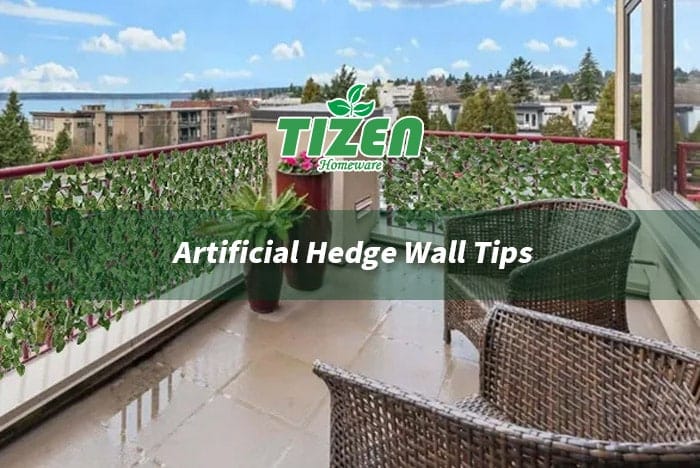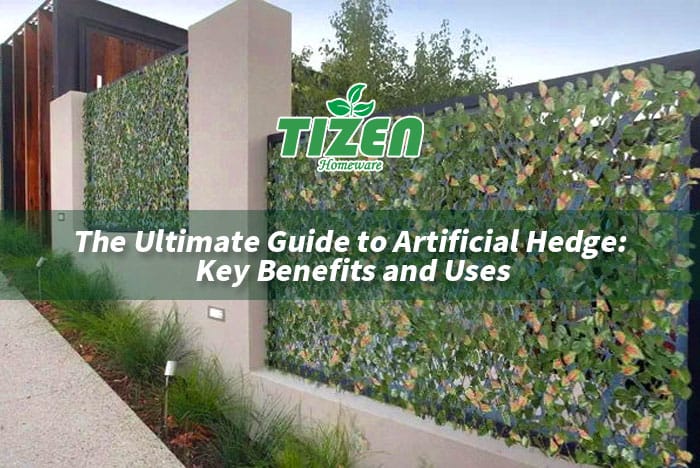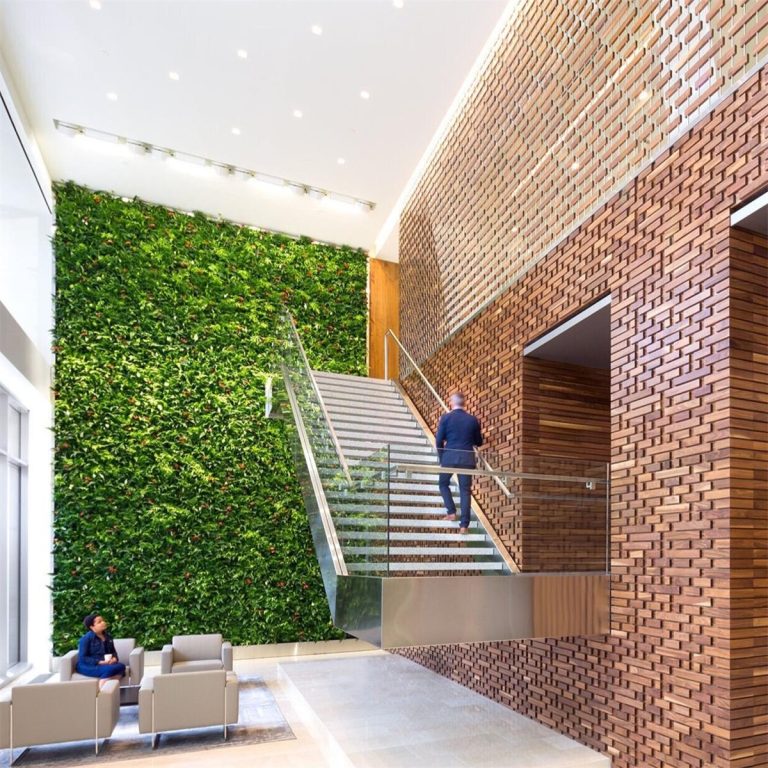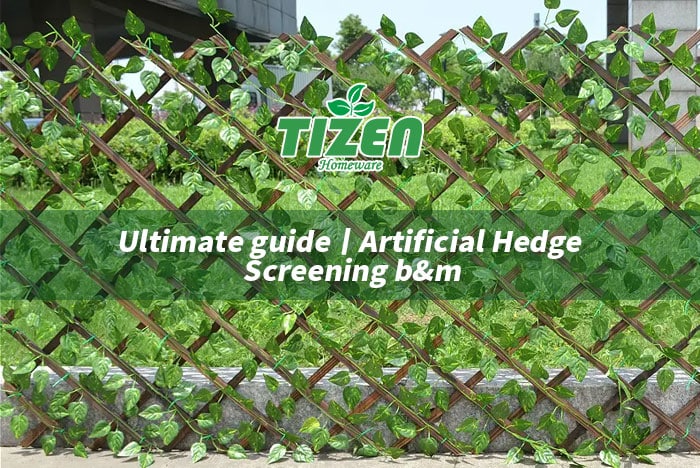
Types Of Artificial Hedge:
There are different materials used in artificial hedge, such as plastic, silk, and polyester, each with its own unique benefits and drawbacks.
Uses Of Artificial Hedge:

Artificial hedge is widely used in commercial and residential landscapes, as well as in interior design, to create privacy screens, add greenery, and enhance the overall appearance of a space.
Installation and maintenance:

Installing an artificial hedge requires careful planning, measuring, and cutting to ensure a seamless look. Maintenance is minimal, with periodic cleaning to remove dirt and dust being the main requirement.
Cost-effectiveness:

Artificial hedge can be more cost-effective than live plants, as it does not require water, sunlight, or regular maintenance.
Durability:

Artificial hedge is more durable than live plants, and can withstand various weather conditions and exposure to sun, wind, and rain.
Penyesuaian:
Artificial hedge can be customized to meet specific needs, such as a specific height, shape, or color.
Environmental impact:
Artificial hedge has a lower environmental impact compared to live plants, as it does not require water, sunlight, or fertilizer, and does not produce carbon dioxide.
Overall, artificial hedge is a versatile and low-maintenance alternative to live plants that can bring greenery and privacy to any space. Contact us at [email protected] for a free sample






